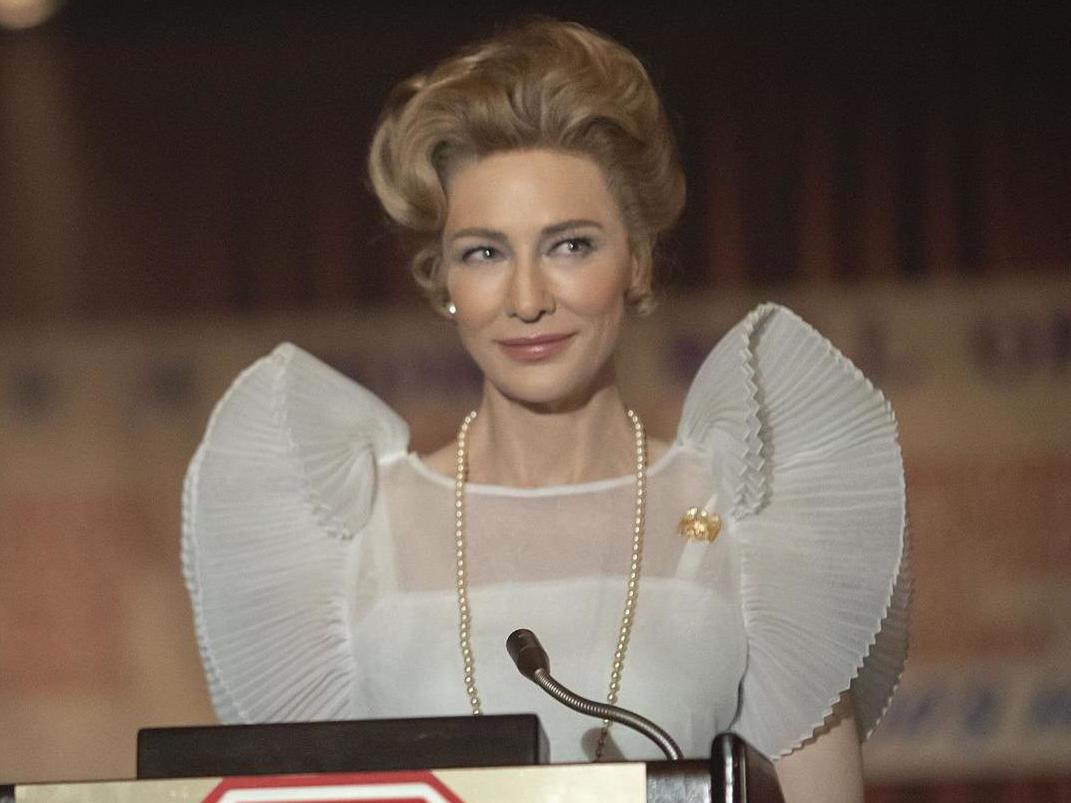Mrs America: a smart take on the blind spots of 20th-century feminism
The Emmy-nominated series brilliantly depicts the women’s liberation movement of the Seventies and its critics, but the heroes and villains are not so clear-cut, says Fiona Sturges

There’s a moment in the television series Mrs America when the journalist and feminist campaigner Gloria Steinem makes a late-night phone call to Betty Friedan, author of The Feminine Mystique. Friedan’s book argued against the post-war cult of the housewife and lit the touch paper for feminism’s second wave in America. In the series, Friedan and Steinem are at loggerheads. Friedan can’t stand Steinem’s softly-softly diplomacy and is irked by her prettiness; Steinem isn’t a fan of Friedan’s bull-in-a-china shop tactics. “Every time I reach out to her, I pull back a bloody stump,” complains Steinem to a colleague. But then she is reminded by a fellow campaigner, Natalie Gittelson, that “we get to do what we do because [Friedan] risked everything. So before you tell her what she can and cannot do, consider just saying thank you.” And so, a few days later, Steinem picks up the phone and does just that. “I don’t know if I ever told you,” she tells Friedan, “but your book changed my life.”
Mrs America is a stylish ensemble piece about the struggle for gender equality in the Seventies that was thrown into focus by the equal rights amendment (ERA), a proposed change to the constitution guaranteeing equal rights for women (spoiler alert: it was defeated). Along with Steinem and Friedan, the series also highlights the achievements of Shirley Chisholm, the first black woman elected to Congress, and Bella Abzug, a lawyer and social activist who went on to lead Jimmy Carter’s National Advisory Committee for Women. As Mrs America tells it, their biggest opponent was Phyllis Schlafly (played with starchy brilliance by Cate Blanchett, who has been nominated for an Emmy for the role), who mobilised housewives and the evangelical right to do her bidding. It also proved a handy peg on which to hang her own ambitions as a political activist. Defence was her passion – though, in those days, no one wanted to hear a woman talk about that.
Schlafly is a formidable rival, a sharp-elbowed bigot in twinset and pearls who fetishised domesticity and motherhood, despite having outsourced it in her own home to a black housekeeper. When, in Mrs America, one of her fellow anti-ERA activists reveals she is a member of the John Birch Society, an anti-communist group with alleged ties to the Ku Klux Klan, she smiles benignly and replies, “That’s your right, and I think maybe you should just keep that to yourself.” On hearing of secretaries being sexually assaulted by their male bosses on Capitol Hill, she shrugs and says they must be “inviting it” since “virtuous women are rarely accosted by unwelcome sexual propositions”.
Just as compelling as the gulf between Schlafly and the women’s liberation movement, however, is Mrs America’s depiction of the competing agendas of feminists. Race is a grave blind spot among the white, middle-class campaigners who habitually talk over their black peers. When Margaret Sloan-Hunter, the only black writer at Steinem’s Ms magazine, pitches an idea during an editorial meeting about tokenism in the workplace, her co-workers stare blankly at her. “You’re not saying you feel like that here – look at our latest issue!” says one editor, waving a cover image featuring a black woman. Steinem soothingly adds that Sloan-Hunter should speak out if she ever feels overlooked because of her race, ignoring the fact that she just did.
The term intersectionality hadn’t been invented in the Seventies, though the hierarchy of privilege on display is jolting in its familiarity. So too the factions – black vs white, young vs old, gay vs straight, working mothers vs stay-at-home ones. Such divisions have always been there, though today they are amplified and heightened by social media to the point where resolution, or even a calm conversation, can seem impossible.
In Difficult Women: A History of Feminism in 11 Fights, the author Helen Lewis looks at the victories secured by 19th- and 20th-century British feminists that we now take for granted, among them the right to divorce, vote, study at university, work, consent to sex, abort babies and escape male violence. “Progress erases struggle,” says Lewis, noting how much of their work is forgotten, along with the opposition they faced. The women who brought about change, she points out, were often bloody-minded, defensive and mean-spirited. They were, to use today’s parlance, problematic. But to expect ideological perfection from our feminist forebears is to wish for the moon on a stick.
Betty Friedan could be narcissistic, judgmental and petty. She famously called lesbians the “lavender menace” and wanted to exclude them from the movement. She also had a hell of a temper, as evidenced at a public debate with Phyllis Schlafly where, after being goaded about her divorce, she yelled: “You are a witch! God, I’d like to burn you at the stake.”
Every political cause has its heroes and villains, though Mrs America expertly depicts the grey space between them. It shows how movements rise up through desperation and the desire to do good, but how stubbornness and self-interest are often vital ingredients in getting stuff done. It shows how marginalised people routinely fail to notice those more marginalised than themselves, and that humans are infuriating and complicated. Rather than dismiss those feminists who battled for the freedoms we enjoy today, we need to acknowledge them, understand them and learn from their mistakes.
‘Mrs America’ is available to watch on BBC iPlayer
Subscribe to Independent Premium to bookmark this article
Want to bookmark your favourite articles and stories to read or reference later? Start your Independent Premium subscription today.

Join our commenting forum
Join thought-provoking conversations, follow other Independent readers and see their replies